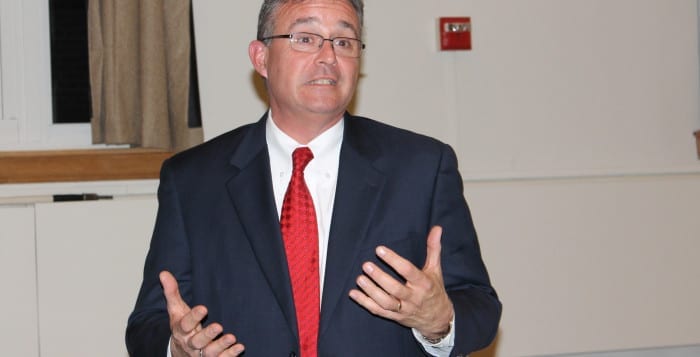Here is an interesting idea. We know that sleep patterns change as we age. Older adults seem to have more difficulty getting an uninterrupted night’s sleep. Some maintain they need less sleep as they get older, although there is scientific dispute about that. Now researchers are suggesting that such changes “may be an evolutionary adaptation that helped our ancestors survive the night,” according to a New York Times Science item titled, “Alive One More Day, Thanks to Grandma’s Insomnia” by Aneri Pattani. Younger people tend to stay awake later and sleep later. With different hours for sleeping, at least one generation was awake or lightly dozing at all times through human history to be on guard for the rest, a sort of inadvertent night watch.
That makes me feel a bit better when I wake up at 3 a.m. and can’t fall back to sleep. Now I know I am on guard duty and there is a purpose to my tossing and turning. Curiously I can usually fall asleep again with the breaking dawn and always half an hour before the alarm is set to go off. So maybe there is something to the night watch theory. With the coming light, others will awake, it is safer, and sleep can be resumed.
Come to think of it, the whole idea of sleep is compelling. Sleep, for all the studies, is still mysterious. The ancients revered sleep for what was revealed through dreams. That’s also true for some not-so-ancients, right up to Tevye in “Fiddler on the Roof,” when he persuades his wife to let their daughter marry the poor tailor, not the rich butcher, because of his alleged dream.
We spend about one-third of our lives asleep, or at least we are supposed to according to medical standards, yet there are some who resent that time lost. Sleep refreshes us, reenergizes us, even strengthens our immune systems. Yet some say, “I’ll sleep when I am dead,” and try to plow through the days with just short naps. Sooner or later, that deficit catches up with them. Those are the folks who can be found asleep on the subway, at the opera or during an early morning lecture.
How we go to sleep is as fascinating as the fact that we do. There are those who read themselves to sleep, whose eyes get heavy to the point that they can just drop off. Some have to unwind from their activities for a couple of hours in front of the TV before they can relax sufficiently to put themselves to sleep. I am one of those teapots: Just tip me over and pour me out. When it is time to go to sleep, I get into bed and most of the time, once prone, I almost immediately fall asleep.
Did I learn as a young child to put myself to sleep? Or is it genetic? My husband fell asleep only after a nightly battle with the sleep demon. We had three children. One goes through a routine that he has devised to fall asleep, one struggles with difficulty to fall asleep and one, like me, just lies down and is out. While that last scenario sounds preferable, we who fall asleep easily need sleep urgently. I go from 9 or 10 to zero energy in remarkably short order. Then, if I don’t allow myself sleep, I am almost in pain. I used to sleep eight-and-a-half uninterrupted hours, then wake up ready to sing, but now there are those interruptions.
Biological clocks are also interesting. There are those who need to go to bed at 9 or 10 o’clock at night, and then again there are some who don’t feel sleepy until 1:30 or 2 o’clock in the morning. Those are usually classified as morning people or night owls. It’s usually best if those opposites aren’t married to each other.
But then again, they can take turns feeding the newborn or standing the night watch.





